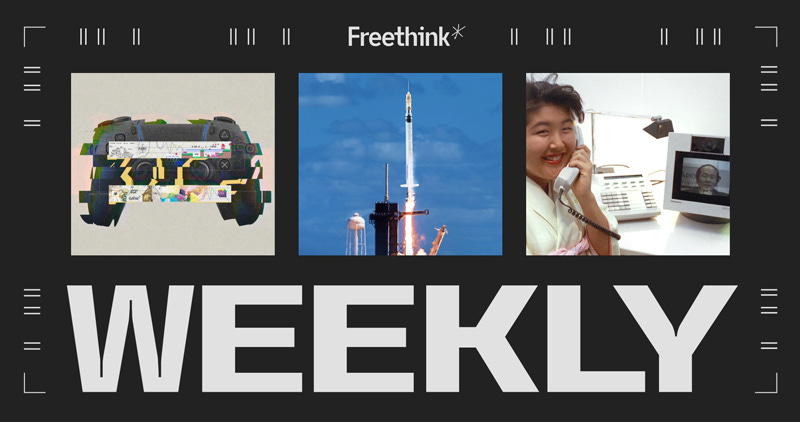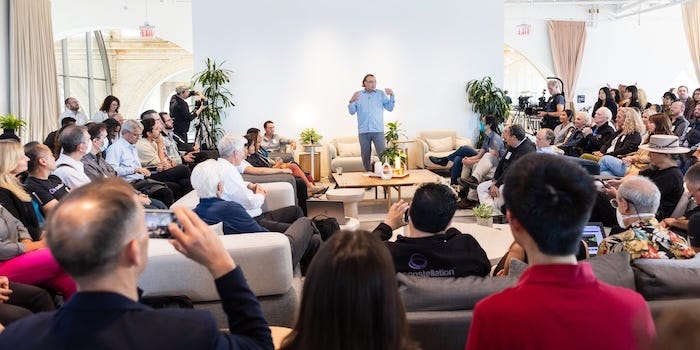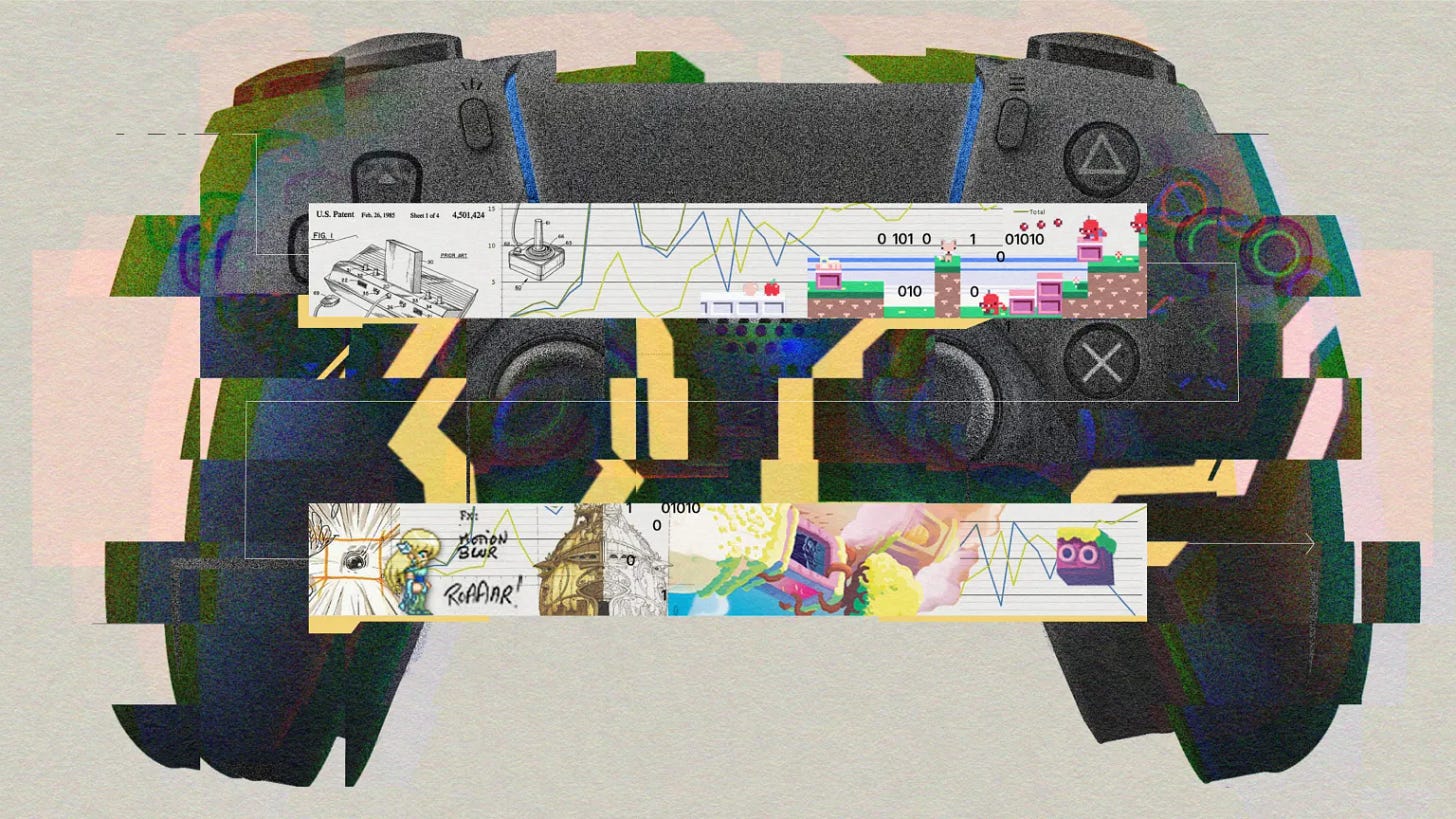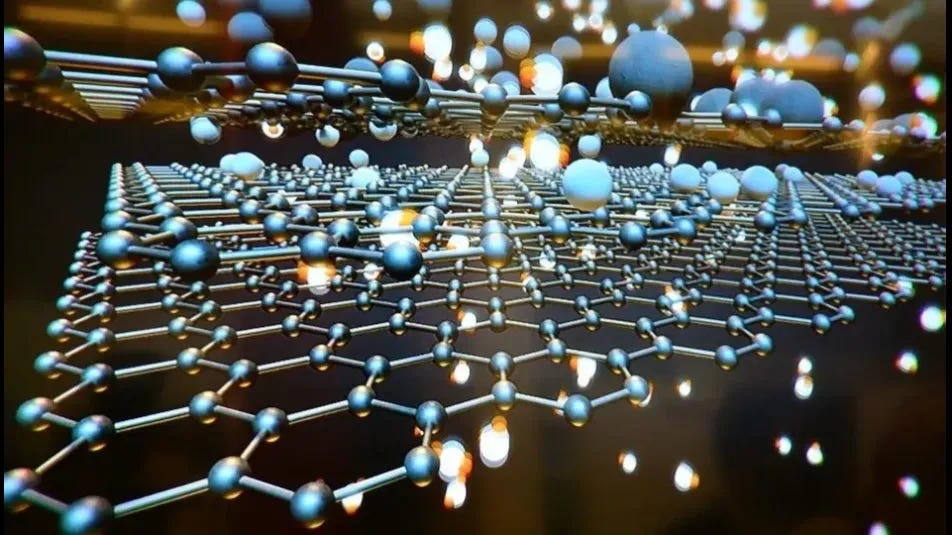🌎 Space pharma factories
Reusable rockets have opened the door for entirely new industries.
Hey Freethinkers,
It’s so easy to not leave my house.
I have a fully remote job, Amazon Prime, and GrubHub+. With FaceTime, I can see my friends and family from my couch, and the ridiculous number of streaming platforms I subscribe to means I’m never short on entertainment. Throw in some social anxiety and an introverted personality, and you get whole weeks where my car doesn’t move from its parking spot.
Still, even I, the ultimate indoor cat, can’t deny craving real human interaction from time to time — there’s a kind of connection you have with people in physical spaces that just can’t be replicated through a screen.
In 2024, Freethink started tapping into this human desire for IRL connection by hosting intimate live events where scientists, filmmakers, artists, and other attendees explore big, important ideas and immerse themselves in art designed to expand their minds.
The latest Freethink salon focused on the future of space exploration, and this week, Freethink published a recording of one of the evening’s highlights: a live conversation between Varda Space Industries' CEO Will Bruey and Freethink’s own Kmele Foster.
Also on deck: columnist Kevin Dickinson talks to the indie developers who could save the video game industry from itself.
Read on,
Kristin
THE FREETHINK INTERVIEW
Why the future of pharma is off-planet
Gravity is, on the whole, pretty useful for manufacturing — just imagine how hard it would be to build cars if parts kept floating off the assembly line — but some products, including certain pharmaceuticals, would be easier to produce if we could remove gravity from the equation. Varda Space Industries is developing “space factories” to manufacture these goods in Earth’s orbit, and on April 8, Will Bruey, the startup’s CEO and co-founder, spoke at a Freethink Media Salon in Los Angeles, CA, about its first attempts to cook drugs in space — and what comes next. For details about future Freethink Events, be sure to sign up for email notifications.
THE DIGITAL FRONTIER
Skype is dead. Here’s why it almost wasn’t born.
Skype once dominated internet calling, but by the time the pandemic made “Zoom” a verb, the platform’s popularity had plummeted. On May 5, 2025, it was officially retired. In a recent installment of Pessimists Archive, a newsletter highlighting historic examples of technophobia, writer
recounts how traditional telephone companies once waged a war on internet calling — and had they won, Skype, Zoom, and all the other services that lets us talk to people across the globe without worrying about the per-minute cost might never have existed.THE UPCOMING EVENT
We are excited to announce an exciting new event series called The Great Progression. As systems from the 20th century falter, world-changing technologies like AI, clean energy, and synthetic biology are opening a rare window for reinvention. This series — curated by futurist Peter Leyden in partnership with Freethink — will kick off Thursday, May 29th in San Francisco.
At this event, we’ll hear from:
–
, Editorial Director at Google Labs and bestselling author– , co-founder of Siri and VP of AI Experience at Airbnb
Join us for a night of great conversation about the future we all want to see.
CONSUMER TECH
Indie developers may save the video game industry from itself
The majority of Americans play video games, but despite the popularity of its product, the video game industry is currently in a tough spot. Sales are slumping, and the astronomical production costs of prestige titles are making it harder for major studios to turn a profit, which has led to an increase in subscriptions, microtransactions, and other gaming elements designed to separate players from their money. In a new feature for Freethink, columnist Kevin Dickinson talks to the indie developers eschewing these trends and finding success making the games they’d want to play.
WORTH SHARING
The 6 strongest materials on Earth are harder than diamonds
When I was a kid growing up in the ‘80s, Pluto was a planet, climate change was debatable, and diamonds were the hardest things on Earth. Today, we know that none of those things are true — but if diamonds losing their spot atop the hardness rankings slipped by you unnoticed, astrophysicist Ethan Siegel has you covered. In a recent article for Big Think, he counts down the six materials now known to be harder than diamond — and shares how they could make the impossible possible.














